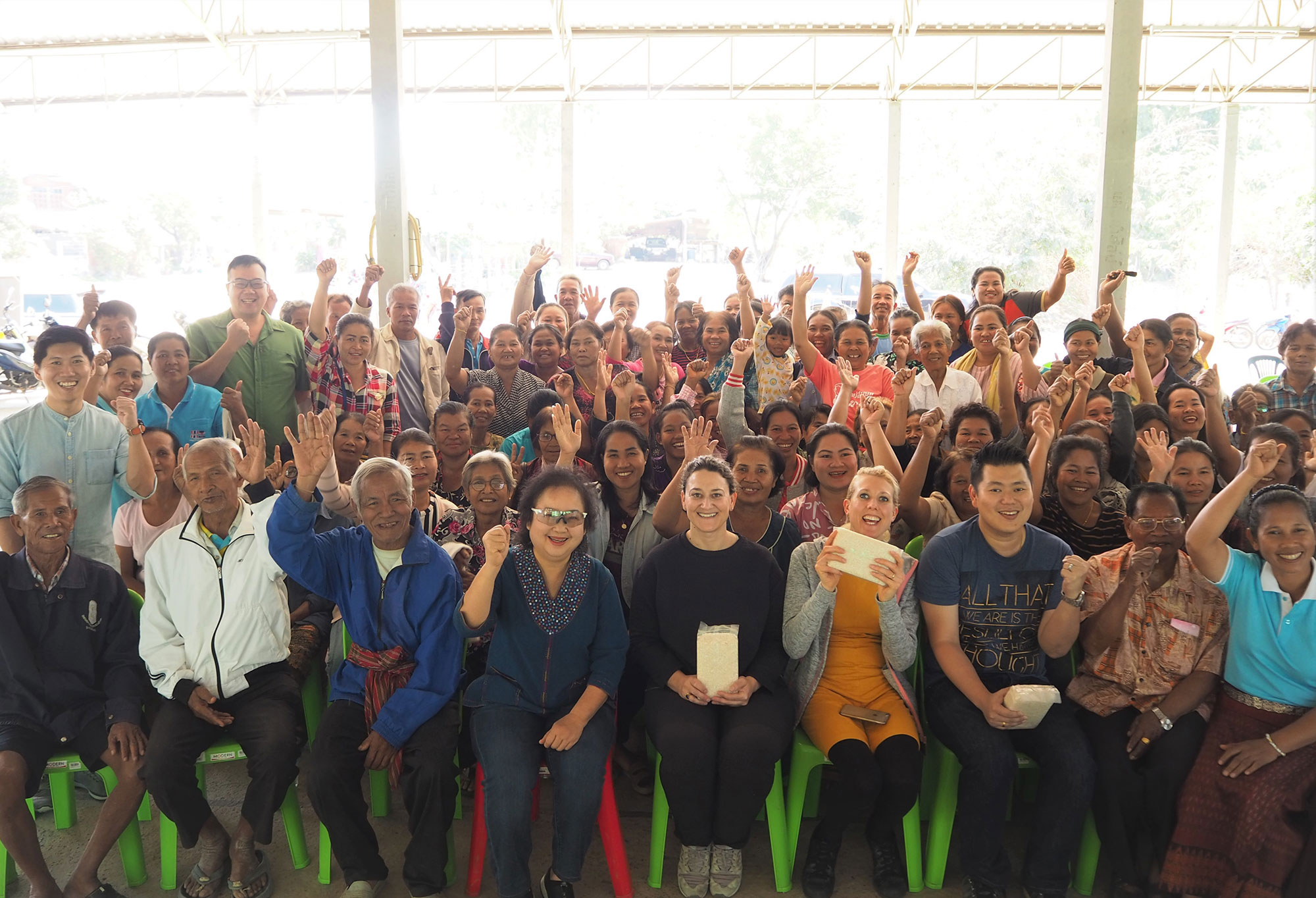It is less than a year since Louke Koopmans, Global Sustainable Sourcing Manager for Mars Food first visited Thung Kula Rong Hai or field of the crying Kula in Northeastern Thailand. Today, she is back here again to meet farmers’ groups and witness a change she does not expect.
“I see the power shifting. Farmers can make suggestion to the millers. Farmers are speaking up what they want and what their opinion are. It is a breakthrough moment,” Ms. Koopmans told Agriculture and Food Cluster’s communication team.
After seeing several sensitive issues are openly discussed between farmers and the millers during the meeting, Ms. Koopmans could feel the breezing wind of change is coming. “Farmers’ groups were very keen to hear that consumers are now interested to know where their rice is grown.”
Thung Kula Rong Hai was once a desert-like land which stretches across several districts in five provinces in the Northeast – Surin, Roi Et, Maha Sarakham, Yasothon and Sisaket with an area of about two million rai. Today, this region
has become Thailand’s well-known source of growing Hom Mali rice.
Joining the field trip was also Fatima Laffitte Solis, Sustainability Manager at Herba Ricemills, who wants to see lives of farmers improve in all aspects.
After working with farmers in Thailand for a year, Ms. Laffitte’s determination to help them survive climate change has only increased.
“Besides increased income, I want farmers be aware of the project’s wide range of benefits,” she said.
As extreme weather intensifies and so do the lives of farmers, Mars Food and Herba-Bangkok (Ebro Foods) team up with Thailand’s Rice Department and German International Cooperation (GIZ) through a joint project called Sustainable Aromatic Rice Initiative (SARI) – Thailand to provide local farmers the skills and knowledge to develop high-quality and sustainable rice.
Unlike some other Asian countries where women working in the rice field do not get half the credit of the real work they do, Ms. Laffitte spoke with the village’s female head and learned that roles of Thai women in the rice field here are not invisible and women’s voices are central to decision-making on any matter.
“I am very happy to hear about this.” Ms. Laffitte said.
Ms. Koopmans and Ms. Laffitte drew inspiration for staying focused on their works from the smiles of the hundreds of farmers their companies have been working with through the SARI – Thailand project, which was introduced to northern Thailand in July 2018.
Lives of farmers inspire them.
And the two ladies hope lives of farmers will inspire you too.




